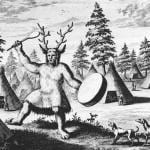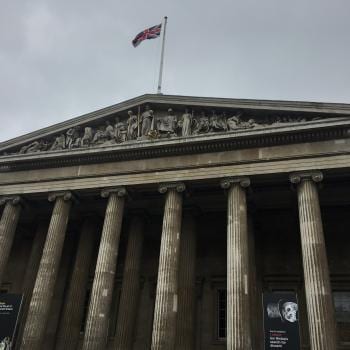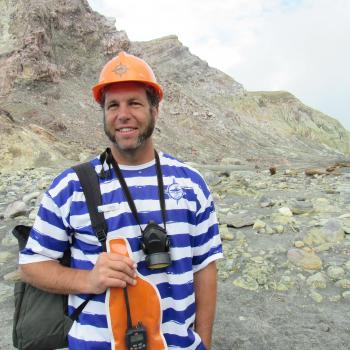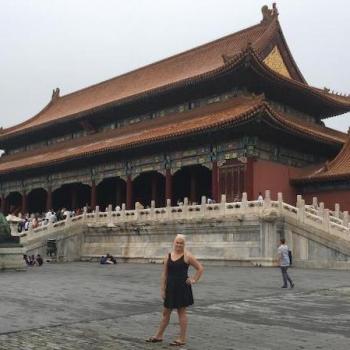Following the post “6 Reasons to Stop Using the Word Shaman,” I decided to clarify some of the more controversial points of contention and add some fuel to this fiery but important discussion.
I would also like to reiterate that I am not referencing the use of the word by indigenous people who identify themselves as shamans. Rather, I am targeting its use within the new age/pagan/witchcraft and academic communities of the Western traditions. Additionally, I am well aware that there are indigenous folx who identify as both witches/pagans and shamans. I am in no capacity judging their use of the word. All the power to them for turning the colonial framework upside down and adopting, adapting, and become adept at reorienting how the word is used.
Furthermore, Tom Swiss at The Zen Pagan and John Beckett at Under the Ancient Oaks have also both written pieces in response to my original post that I’ll also address.
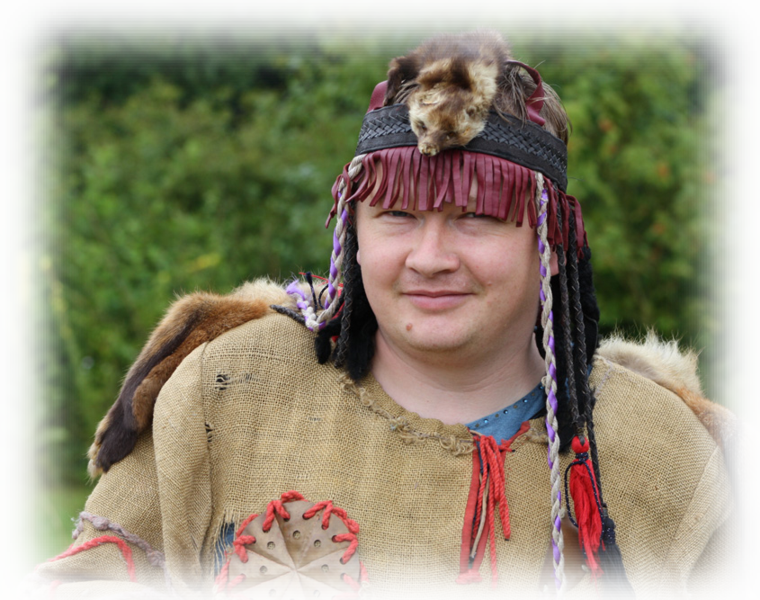
Lastly, I was called out for speaking about an issue relating to the indigenous community while I myself am of Western heritage. A point which I recognize as valid, and will, therefore, in this post, elevate indigenous voices through the use of direct quotes. I have also been called a “spoiled white girl” in response to my post by a published author. Yes, I am indeed privileged due to the color of my skin, however, to me this means that I have a responsibility to use my voice and platform at every available opportunity to draw attention to injustices in the past and present.
#1- Its use is just one part of the larger issue of commodifying indigenous spiritual practices and is culturally insensitive
Wendy Rose, P.h.D, a Hopi/Miwok writer has written several pieces on this very topic. She points out that the appropriation of terminology is no different to her than the other more violent forms that colonialism adopts:
“the Indian of me does not differentiate between the ‘whiteshaman’ who steals and misrepresents my culture, and the multinational corporations that are killing my relatives in Brazil and Venezuela…he or she is… a part of that murdering thrust, that pioneer spirit, that taming of the wilderness and clearing of the jungle. The ‘whiteshaman’ is getting a piece of the action in contemporary manifest destiny and is, in essence and in philosophy, descended from earlier colonists, as well as related to the most brutal modern ones.”
Jack D.Forbes, P.h.D, a Powhatan-Delaware scholar, says this about the use of the word shaman: “those who use it are non-Native and/or anthropological, or are ignorant of Native Americans’ feelings.”
And lastly, Ines Hernandez-Avila, P.h.D, a Nez Perce/Tejana scholar expands on this problem by explaining about the issues still being faced by indigenous people in regard to cultural preservation and traditional knowledge learning:
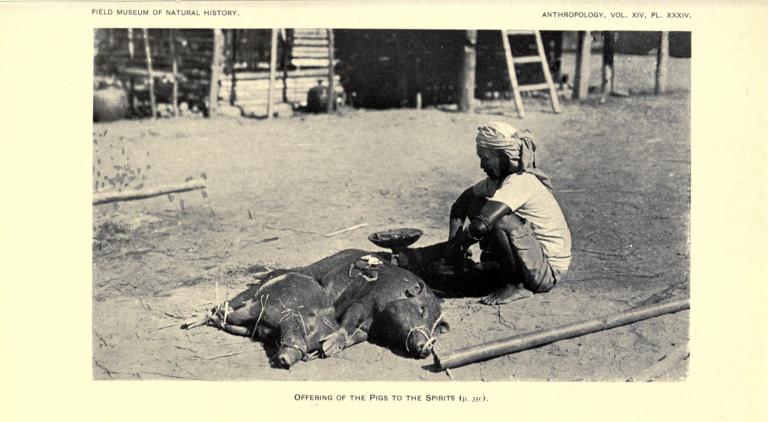
“It is insulting to hear non-Indians self-righteously proclaim their entitlement to our traditions-whether via New Ageism or because they have had the (class/ economic) privilege of studying our languages, histories, and cultures in institutions of higher learning- while the young people in our communities still contend largely with a boarding school type of indoctrination and otherwise poor education that rarely allows them to finish high school. In academia, the “experts” assume the right to pass judgment on our authenticity, by the rule of their supposed “civilized objectivity.”
#2- Its continued use by academics is not a valid justification
One of the counter-arguments I’ve heard is that since the word is still accepted and used in academia, it is apparently appropriate to be used across the board? I’d like to point out the fact that there have been innumerable words/concepts that were once accepted within academia but are now considered highly offensive. Racism, Social darwinism, and eugenics anyone? Furthermore, there are many academics that are now challenging its use. I’ve included three relevant quotes below for example:
Macarena Gomez-Barris, P.h.D, Chairperson of the Department of Social Science and Cultural Studies at Pratt Institute and Director of the Global South Center, has studied the role of New Age Tourism in Peru extensively. She expounds on the use of the word shaman and its roots within the Western world in the quote below.
“The present-day fascination with the shaman has a strong foothold in the colonial past…in the dichotomous schema of good and evil, order and chaos, civilization and barbarity that colonialism produced, the wild man was a necessary figure. The shaman, constructed by Europeans as a figure of alterity, became the repository for all kinds of colonial fantasies and structural violence.”
Lisa Aldred, P.h.D, Associate Professor at Elon University, has written extensively about cultural appropriation in the United States. She discusses the commodification of indigenous spiritual practices and its historical context.
“The Noble Savage in New Age garb is a recent incarnation responding to a significant minority of the dominant population who have found mainstream culture lacking in meaning. What has changed is that this particular Noble Savage has been quickly snapped up by consumer capitalism and mass- marketed. Moreover, this “spiritually wise Noble Savage” intrudes on a new area of cultural genocide.”
Pedro de Niemeyer Cesarino, P.h.D, University of São Paulo, has studied and worked with many of the indigenous peoples of the Amazon. He has written several articles and books about indigenous spirituality and its collision with the Western world. He dives into the processes of colonization and its continuing implications.
“I think all this interest in Amazonian shamanism and ayahuasca is fundamental, taking into consideration the “colonization of the imaginary” by the Western paradigm which still dominates on this side of the Atlantic…there seems to be a clear process of reification, mercantilization and distortion of “traditional” Amazonian knowledge, since the foreign viewpoint (especially that of the literate urban middle class) tends to be a bit desperate in its mode of relating with alien experiences. By this I mean: the relationship, specifically with indigenous peoples, tends to take place more in a superficial or idealized mode, in an attempt to find quick answers or outlets for curiosity and unilateral angst, as opposed to a relationship that emerges from dialogue, conviviality or deep affective encounters…Which is to say, indigenous shamanism becomes a metaphor for our dilemmas – reintegration with nature, rediscovery of the self, religion as a lost totality, overcoming the problems associated with neurosis and solipsism, among others – rather than being understood according to that which is original and specific to itself.”
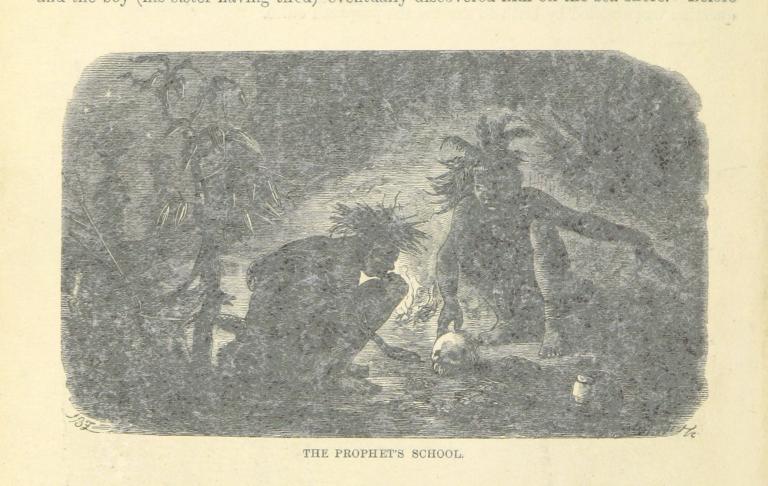
#3- using the word ‘shaman’ is not the same as using other umbrella terms
As I argued in my previous post, historical context matters. This word was specifically used to deny basic human rights to a threatened people group. It was specifically used to insinuate a lower level of humanity. It was specifically used to validate cultural genocide. Is that really something that any of us want to be associated with- in any capacity? I certainly do not.
And yes, to those who would say that words’ meanings change and evolve- I’m not arguing with you. But, in this instance, based on everything I have already pointed out, I feel that it’s time to move on from using the word incorrectly and inappropriately.
In his article, Tom Swiss points out that: “a Google Books search shows that “priest” was often used to refer to imams before Islam became familiar to the English speaking world.”
In my view, this statement merely fortifies my stance that the English language can successfully move on from generalizations based on new and widespread information.
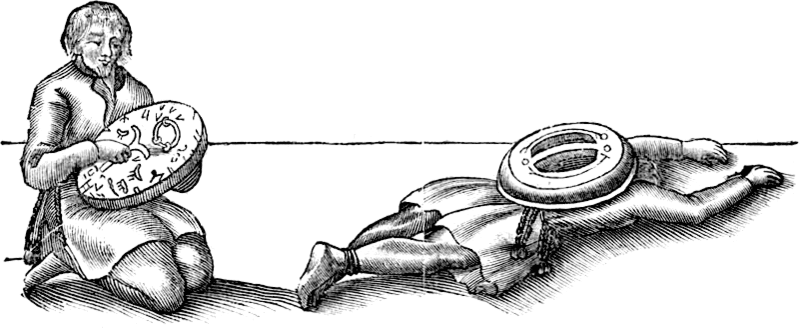
#4- ‘shamanism’ is not a universal birthright, nor is it missionary in nature
Many have stated that ‘shamanism’ is a primordial human role that is the birthright of all people. I am not denying the fact that there are many effective techniques for spirit work found all over the world. What I am saying is that despite the similarities, these specific spiritual practices are a unique product of their culture; worthy of attention and respect in their own, individual capacity.
Additionally, to those who say that it is their calling to go forth and profess these universal truths, I offer this quote by renowned Standing Rock Sioux scholar Vine Deloria Jr:
“If we accept these claims as true, we are basically saying that traditional Indian religions have become missionary minded and now seek converts in a larger intercultural context. This claim is contrary to every known tenet of any tribal tradition.”
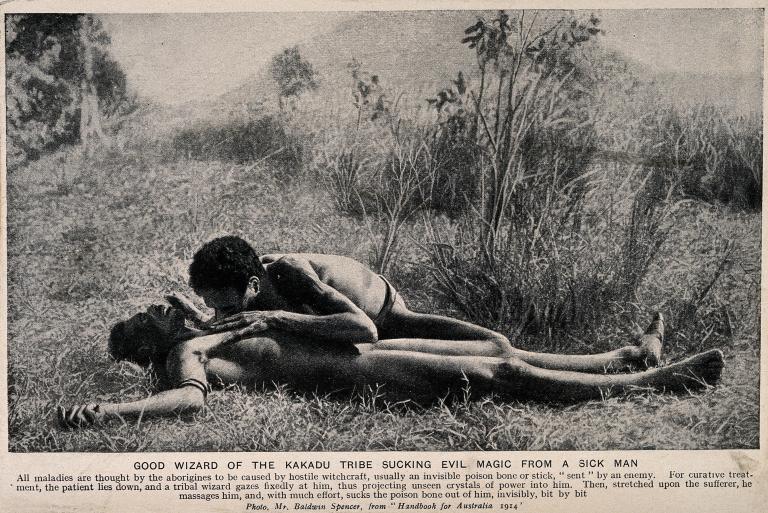
#5- the shaman and the priest are more alike than we realize
In my last post, I questioned why shamans are not referred to as priests. Tom Swiss and John Beckett both disagree here. Tom Swiss states (and John Beckett agrees) that “A shaman and a priest do not fill the same roles.” While I can see their point, I still think that the two are more alike than we realize. The main argument here is that priests are the religious leaders of organized societies. In my opinion, all societies are organized- just in different ways. Others say that the priest does not perform anything ‘supernatural’- in my opinion the transubstantiation and ability to speak directly with god(s) are both magical acts. Furthermore, ‘priest’ also refers to the religious leaders of so-called ‘ancient religions’- such as those of Greece, Egypt, and Rome. From everything I’ve read- these leaders most definitely performed acts that could be viewed as both magical and ‘shamanic’ in nature.
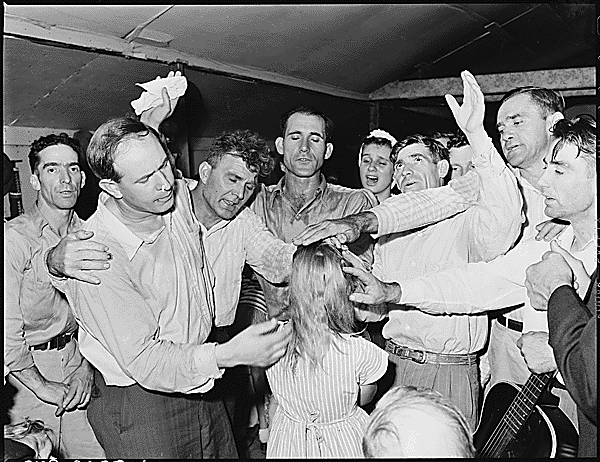
Another quote from the previously named indigenous scholar Jack D. Forbes makes a powerful connection between the two that I think is worth posting in its entirety below:
“the day-to-day work of “shamanism” in North America is carried mostly by Roman Catholic and other priests who daily enact “shamanistic” rituals (such as Mass, a “magic” ritual where wine becomes blood and wafers become flesh) or by charismatic Protestant preachers (healers) who attempt to cure by the laying on of the hands and other techniques of “faith-healing,” or by religious figures (preachers or priests) who attempt to “control” events, obtain wealth, drive away death, or determine who gets into “Heaven” by means of prayers, incantations or ritual. Millions of Catholics recite a ritual incantation on their rosary beads every day while the church actively sells (or has sold) “relics,” medals, and other items which are thought to possess “magic” powers. The Bible has apparently been used as a “talisman” by fervent Protestants, and the cross is viewed as a potent object by many Christians of different denominations. Being “born again,” spirit possession and other acts of “ecstasy” are regular features of some Protestant sects.”
#6- changing the word does not equate with challenging the practices
Tom says, “The cause of justice and human rights is not advanced by denying the validity of shamanism as a general concept.”
Many people have been angry at my supposed disregard for the validity of the so-called ‘shamanic’ techniques. I have never in any capacity challenged the common practices associated with “shamanism” such as trance, world journeying, etc. I am simply stating that perhaps we can find better words for them based on the reasons I list here and those in my previous post.
I admire John Beckett’s post on this topic and agree with the majority of what he elucidates.
He states: “The word and the practice are two separate things. Let’s be clear about one thing: when I say ‘you aren’t a shaman’ I’m not saying that your practice is invalid.”

#7- There are so many variations and meanings of the word shaman that it really doesn’t mean anything anymore
One of my major issues with using the word shaman is that there is no clear definition. It is used by many different people throughout the world and they all have their own interpretation of its meaning. As Arnold van Gennep so aptly puts it: “We have inherited a certain number of very vague terms, which can be applied to anything, or even to nothing… The most dangerous of these vague words is shamanism.”
If it had been adopted just to mean spirit workers in the Amazon, for example, then it would not be an issue. But that’s not the case. I am quite sure that the practices used by the Wisiratu of Venezuela, as another cultural specific example, are much different than those being used by neo-shamans in the United States.
In conclusion, I’ll leave you with the following quote by Troy Linebaugh P.h.D who wrote his dissertation on the topic of shamanism (link below):
“Shamanism imagines, from the perspective of modern, global civilization, the indigenous minorities of the world as an homogenous, Romanticized, exotic other who possesses innate wisdom about the natural-spiritual world, which civilization abandoned when it left the wilderness for the polis…Is it any wonder then that spiritual movements like the New Age and Neo-Paganism, which Romanticize the remote human past, have embraced the shamanism Eliade, Harner, Wasson and others made popular? In an era of seemingly global calamity, shamanism is sold as the purest religion and most in touch with Mother Earth, it is a response to Eliade’s “Yearning for Paradise,” a return to Eden. Nevertheless, consider the source. Is the motive of the science of religion and the construction of shamanism the creation of a new academic “mystery” tradition believed to be the original religion of the human race?…At the same time, marginalized indigenous groups are once more reduced to the fossilized status of noble savages whose cultures and traditions are mere exploitable resources for those of the privileged consumer classes, and a new global polis/barbarian ideology is reinforced.”
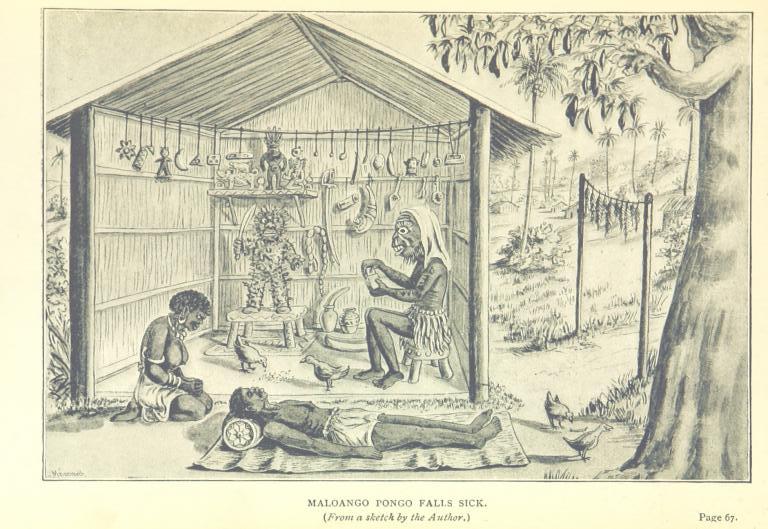
For further reading:
Aldred, Lisa. “Plastic Shamans and Astroturf Sun Dances: New Age Commercialization of Native American Spirituality.” American Indian Quarterly, vol. 24, no. 3, 2000, pp. 329–352.
Gómez-Barris, Macarena. “Andean Translations: New Age Tourism and Cultural Exchange in the Sacred Valley, Peru.” Latin American Perspectives, vol. 39, no. 6, 2012, pp. 68–78.
Buzekova, Tatiana. “The shaman’s journeys between emic and etic: representations of the shaman in neo-shamanism.” Anthropological Journal of European Cultures, vol. 19, no. 1, 2010, p. 116+.
Hernandez-Avila, Ines. “Mediations of the Spirit: Native American Religious Traditions and the Ethics of Representation.” American Indian Quarterly. Vol 20 no 3, 1996 pp. 329-52.
Labate, Beatriz.“Kidnapped by Thunderbolts – Spiral Translations in Myth, Anthropology and Theater: An interview with anthropologist Pedro de Niemeyer Cesarino.” Tipití: Journal of the Society for the Anthropology of Lowland South America. Vol 9, Issue 1. 2011.
Linebaugh, Troy Markus. “SHAMANISM AND THE ANCIENT GREEK MYSTERIES: THE WESTERN IMAGININGS OF THE “PRIMITIVE OTHER.” 2017
Just What’s All This Fuss About Whiteshamanism Anyway? By Wendy Rose
Shamanism, New and Old. By Jack D. Forbes
Declaration of War Against Exploiters of Lakota Spirituality. 1998.

